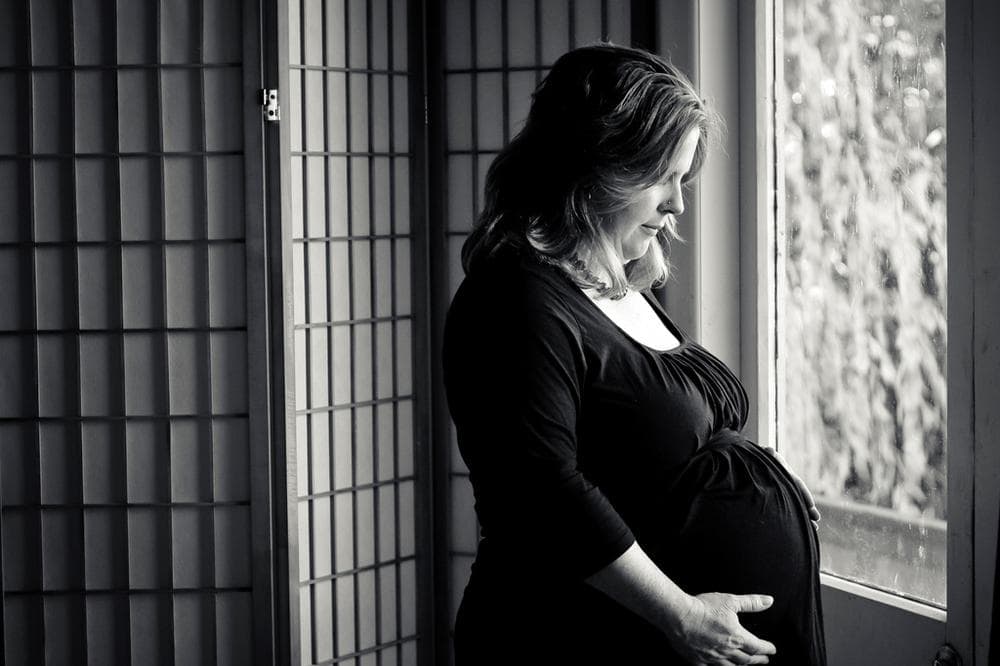Advertisement
Study: Antidepressants Increase Risk Of Preterm Birth

Back in the 1990s, when many of us were still "Listening To Prozac," there was a flurry of news stories that explored this question: should pregnant women take antidepressants or not?
More specifically, was it better for women with mood disorders taking antidepressants to remain on their medication during pregnancy (to prevent slipping back into depression) or stick to earlier conventional wisdom that all drugs (and alcohol and caffeine and swordfish for that matter) should be forbidden during pregnancy? A number of the stories back then concluded that the risk of an unmedicated, depressed mother was more detrimental to her baby than the possible negative effects antidepressants might have on a developing fetus.
Now the pendulum seems to be swinging back. A new report by researchers at Yale adds to a growing body of evidence that suggests taking such medications during pregnancy can increase the risk of medical problems and complications.
The Yale study found that women who are depressed during pregnancy aren't at any higher risk of giving birth prematurely compared to non-depressed women. But the researchers did find that women taking antidepressants during pregnancy were at higher risk for what is called a "late" pre-term delivery, between 34 and 37 weeks. The study was published online last week in the journal Epidemiology. It concludes:
Our study adds to a growing body of research suggesting that SRIs during pregnancy may increase a woman’s risk of early delivery. In assessing the implications of this risk for clinical practice, care must be taken to balance the health implications for the mother with those for the fetus.
Here's more from the Yale news release:
The study [led by Kimberly Yonkers, professor of psychiatry and of obstetrics, gynecology, and reproductive sciences at Yale] found that taking serotonin reuptake inhibitors (SRIs) during pregnancy significantly increased risk of what is called a late preterm birth. Late preterm birth is defined as at least 34 weeks after gestation but before 37 weeks. Antidepressant use is not associated with early preterm birth, which is much more dangerous to the baby.
Yonkers said that several previous studies suggested depression itself might lead to premature birth. The Yale team studied almost 3,000 pregnant women, including those who were diagnosed as depressed during their pregnancy. After controlling for numerous variables such as health history, age, drug use, and socio-economic status, they found no association between depression and premature birth.
They did find a significant risk of preterm birth among women who were taking anti-depressants. So should depressed women not take antidepressants?
“A woman should always consult with her doctor, but if she is symptomatic and suffering the use of antidepressants may be indicated,” Yonkers said.
Dr. Adam C. Urato, Assistant Professor of Obstetrics & Gynecology at the Tufts University School of Medicine and Chairman of the Department of Obstetrics & Gynecology at MetroWest Medical Center in Framingham, says more and more evidence is emerging that women who take SSRI's while pregnant are putting their newborns at risk for all sorts of problems, including higher rates of preterm birth, miscarriage, preeclampsia, newborn behavioral syndrome, persistent pulmonary hypertension in the newborn and neonatal EKG changes.
In an article published last year in the journal Ethical Human Psychology and Psychiatry called "Antidepressants and Pregnancy: Continued Evidence of Harm—Still No Evidence of Benefit," Urato wrote:
The hope that improved maternal mood through medication would lead to better pregnancy results has not been realized; the antidepressant-exposed pregnancies are faring worse. The available evidence raises the question: Are we exposing a generation of women and their babies to drugs that are causing significantly more harm than good?
Urato is pretty emphatic on this topic. He said: "The dominant paradigm is that depression is bad for pregnancy outcomes so women should stay on these medications to improve their pregnancy outcomes. But there's just no evidence to support this."
He says as a maternal-fetal specialist, he consults with an average of 5 or 6 women every week who want to know if it's OK to continue their antidepressants during pregnancy. "My bottom line isn't telling pregnant women what to do — it's giving them full, accurate counseling in this area and making sure they have all the information so they can make an informed decision."
This program aired on May 29, 2012. The audio for this program is not available.
